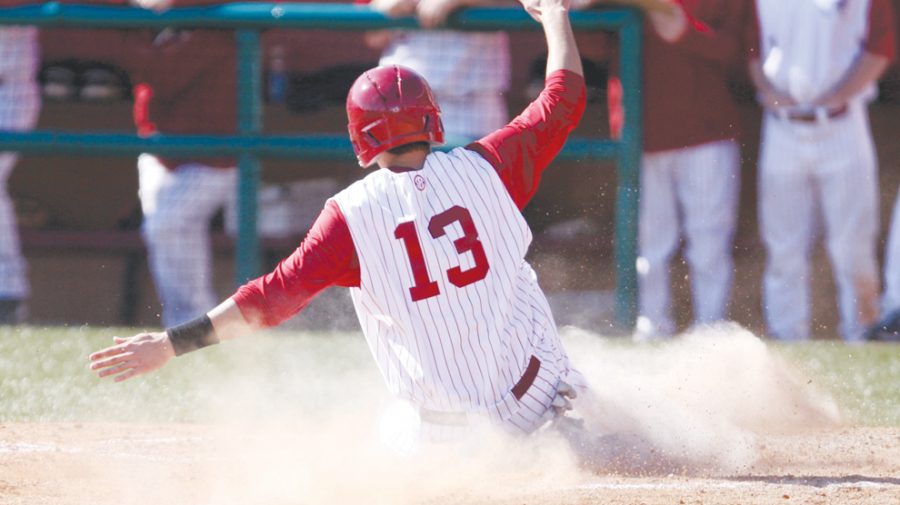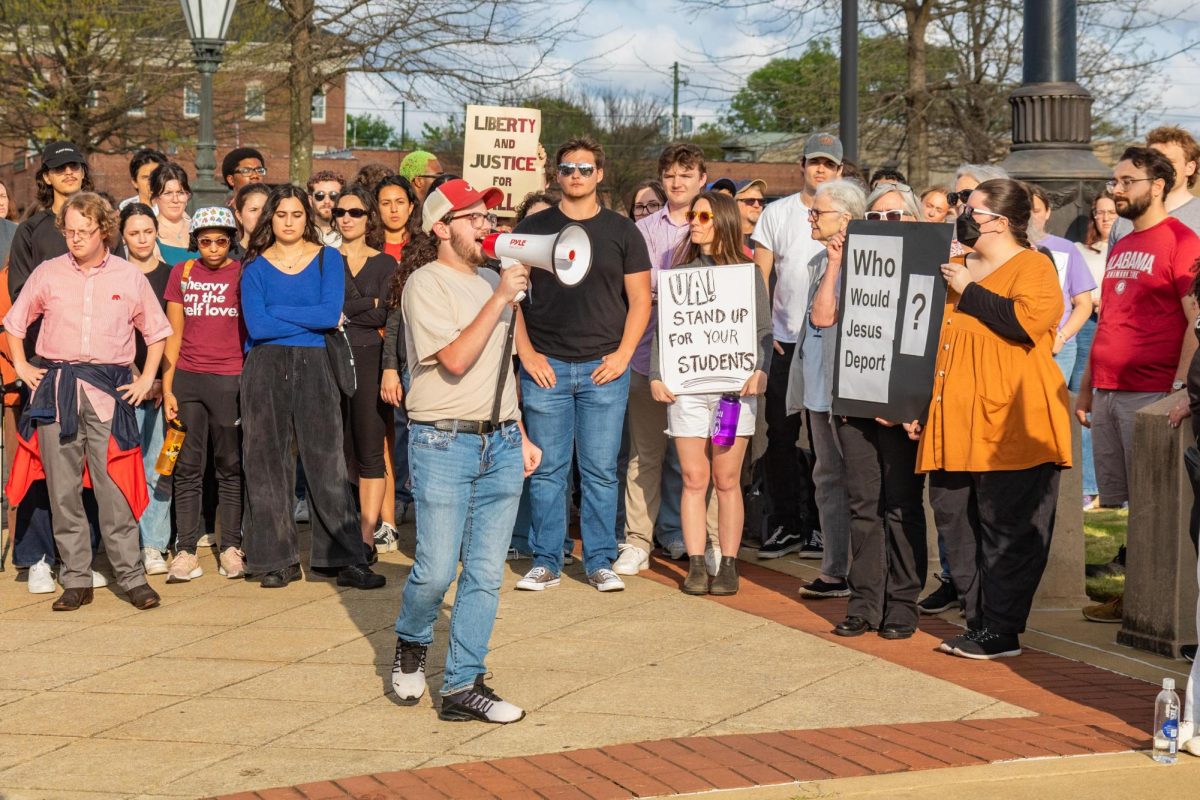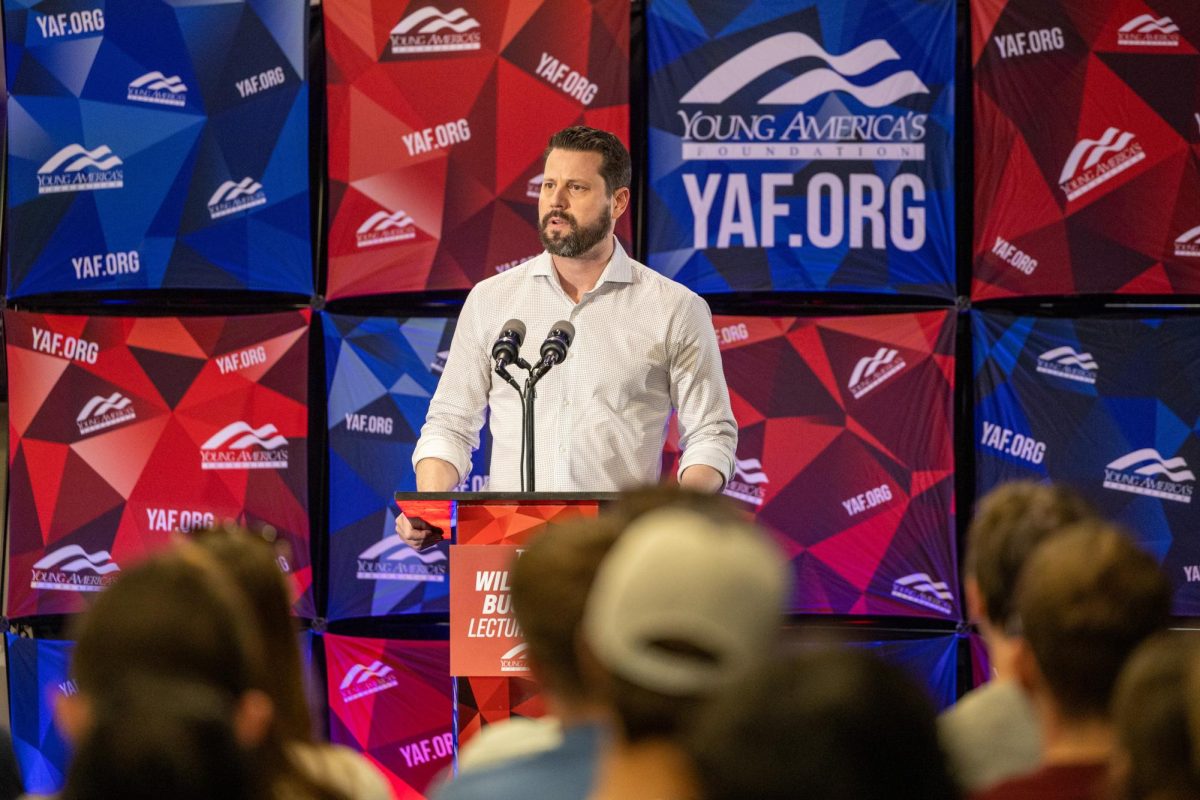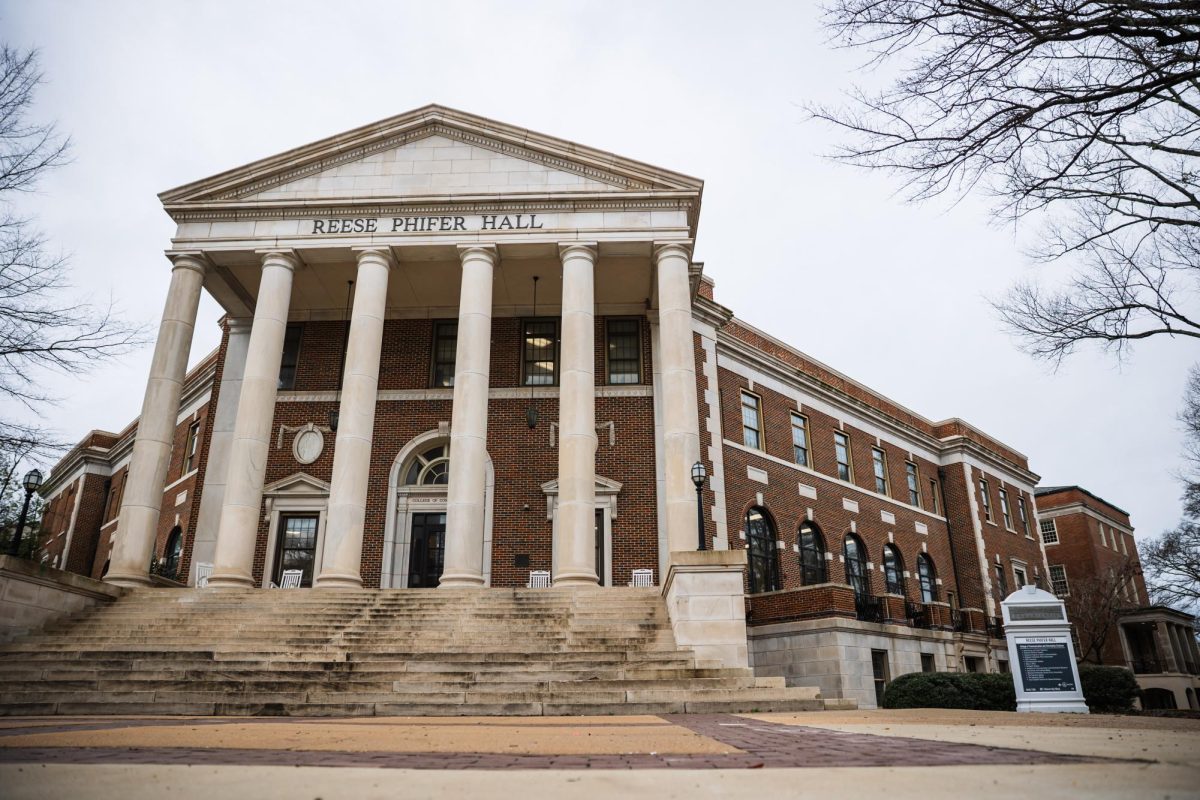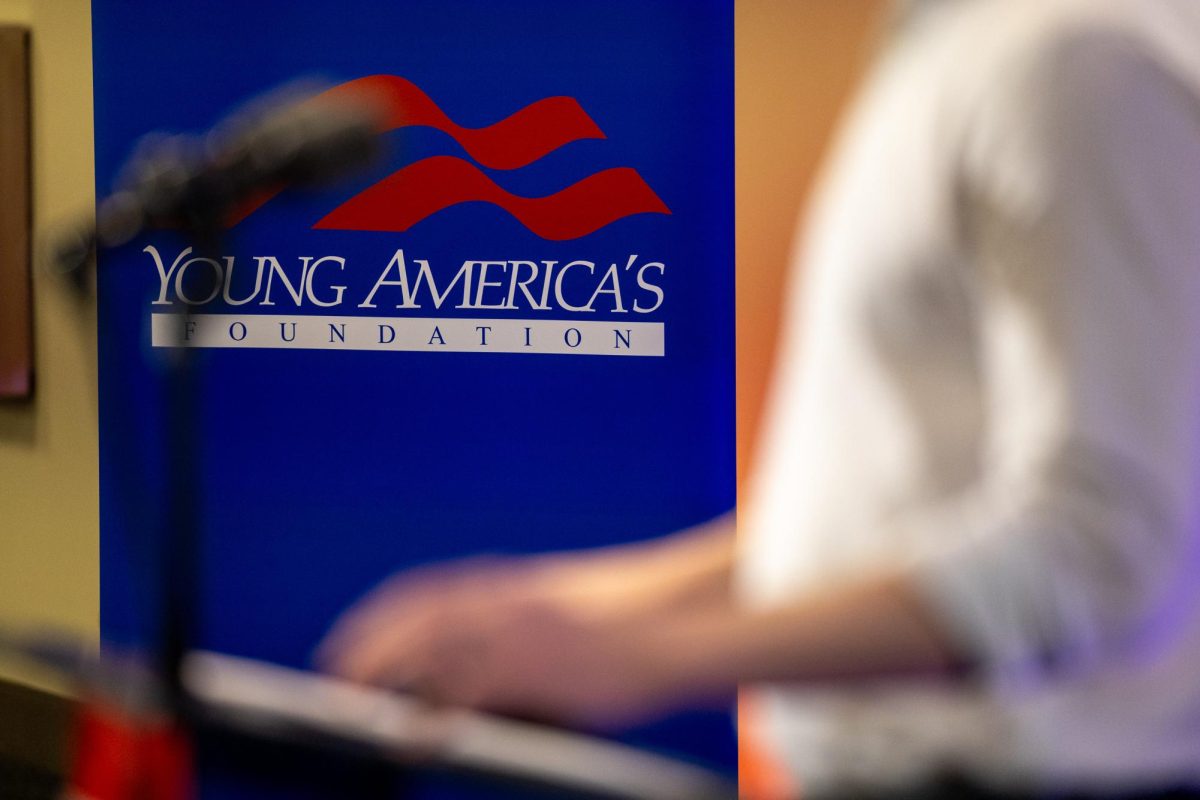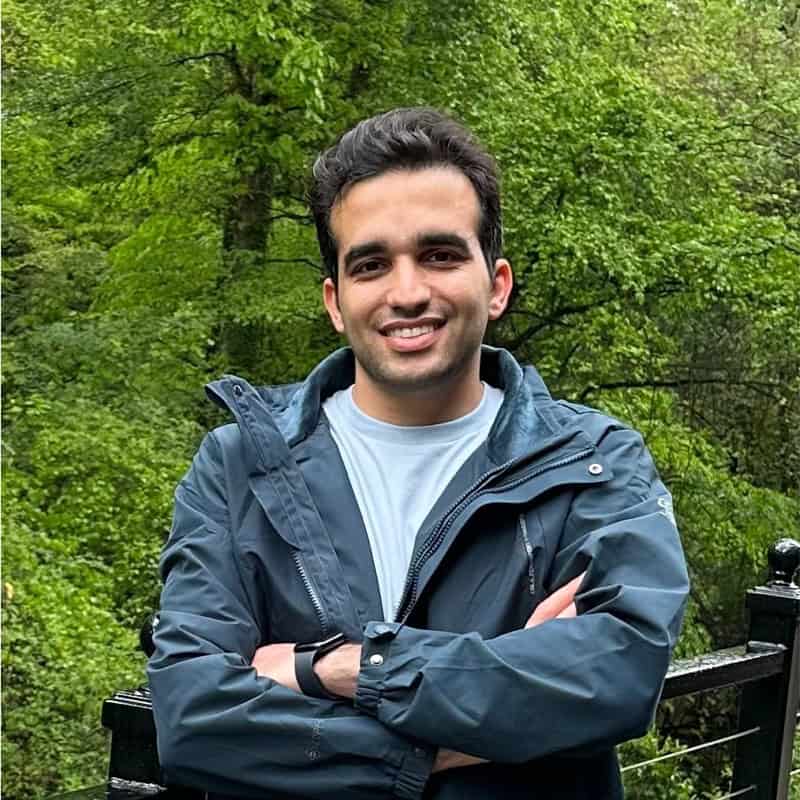Fifteen radiation treatments stand between David Kindred and a healthy life.
Kindred, a senior majoring in management and an outfielder for the Crimson Tide, was diagnosed with Hodgkin’s lymphoma in May 2010. He and his team were competing in the 2010 SEC baseball tournament when he felt pain in his chest. A doctor’s visit and biopsy revealed he had cancer, and he sat out the rest of post-season play.
Hodgkin’s lymphoma is a cancer originating from lymphocytes, white blood cells in the human body. The cancer spreads across the lymph nodes in the body. Patients with Hodgkin’s have a 90 percent survival rate if the cancer is diagnosed and treated early.
Kindred began eight rounds of chemotherapy immediately after being diagnosed. He completed his last treatment Sept. 21. Now, he must begin 15 days of radiation therapy.
“It’s 15 days of radiation for about 10 minutes each day,” Kindred said. “They [his doctors] said there’s no side effects, but it kind of can burn your skin a little.”
For Kindred, his battle with cancer is all but won. He said the real struggle was over the summer, handling the chemotherapy and the stigmas attached to cancer.
“I think they [his teammates] were shocked not that it was just something that happened to a teammate but that someone in their twenties could get some kind of cancer,” Kindred said.
“I guess people have a persona of people with cancer, like they’re dying, they’re bedridden,” Kindred said. “They think you have cancer, and you’re stuck with it. It’s like 99 percent curable.”
Kindred said his early diagnosis has been a blessing during the ordeal.
“The thing is that they caught it so early,” Kindred said. “As long as the cancer doesn’t really involve getting into your vital organs, you can usually knock it out and it’ll usually be knocked out forever.
“I was done playing baseball for the year so I had a very good chance of making a full recovery.”
Kindred said his outlook on the situation helped him deal with it.
“I don’t really make it a big part of my day,” Kindred said. “I know I’m sick, but I don’t really talk about it, and I don’t let it get me down.”
Mitch Gaspard, the head baseball coach for the Tide, said Kindred’s attitude has had a good effect on the team.
“It’s really affected a lot of people in how David has handled it,” Gaspard said. “I think he’s really rubbed off on our players in a really positive way. I think that’s why he’s been doing so well.
“I’ve got great admiration for him.”
Gaspard said there is no reason Kindred would be unable to compete and earn a playing position for the spring season.
“We’re not through the treatments yet, and he’s still got a little ways to climb,” Gaspard said. “Where he’s at is still at a much higher level than where we thought he would be competitively.”
Nathan Baker was Kindred’s roommate when they both played for Ole Miss beginning in the fall of 2006. Though Kindred left for Tuscaloosa in the fall of 2008 and Baker signed with the Pittsburgh Pirates organization in the spring of 2009, Baker said they remained friends.
“I was in complete shock when I heard,” Baker said. “I texted him immediately, and I asked him what was going on and he acted as though it wasn’t a big deal at all.
“He just tries to avoid it because he doesn’t want everybody to worry about it.”
Baker, now living in Tuscaloosa until spring training begins with the Pirates, spends more time with Kindred now and has watched his recovery.
“I’m just happy for him more than anything,” Baker said. “I’m glad he’s been able to fight through this, and he’s made it as though it’s not more of an issue than it is.
“He’s the first true friend of mine that’s ever been diagnosed with cancer, and he’s made it as though it’s not a big issue at all. I think that shows how strong he really is.”
Chris Smelley, a senior majoring in finance and a former teammate of Kindred’s, said they have been lifelong friends.
“David and I have known each other our whole life,” Smelley said. “We actually played on the same tee ball team when we were five years old.”
Smelley, who played for the Alabama baseball team in the spring of 2010 and practiced daily with Kindred, said Kindred never showed any signs of being sick.
“When I found out he was sick, the first thing I thought was there’s no way it’s as serious as it sounds,” Smelley said. “I mean, just a few days before, Dave was playing in baseball games.
“Once it finally sunk in, I felt terrible knowing that he was going to have to go through treatment for up to six months, but the way he handled it was amazing. He was always positive about everything.”
Smelley said Kindred would be able to use his struggle with cancer and recovery as a message for others.
“Now that Dave is through it, he’s ready to get right back where he was; he’s ready to start playing baseball and finish school,” Smelley said.
“Dave has had chances to talk to young athletes at camps and schools, and he will be able to use his testimony to affect the lives of others.”



